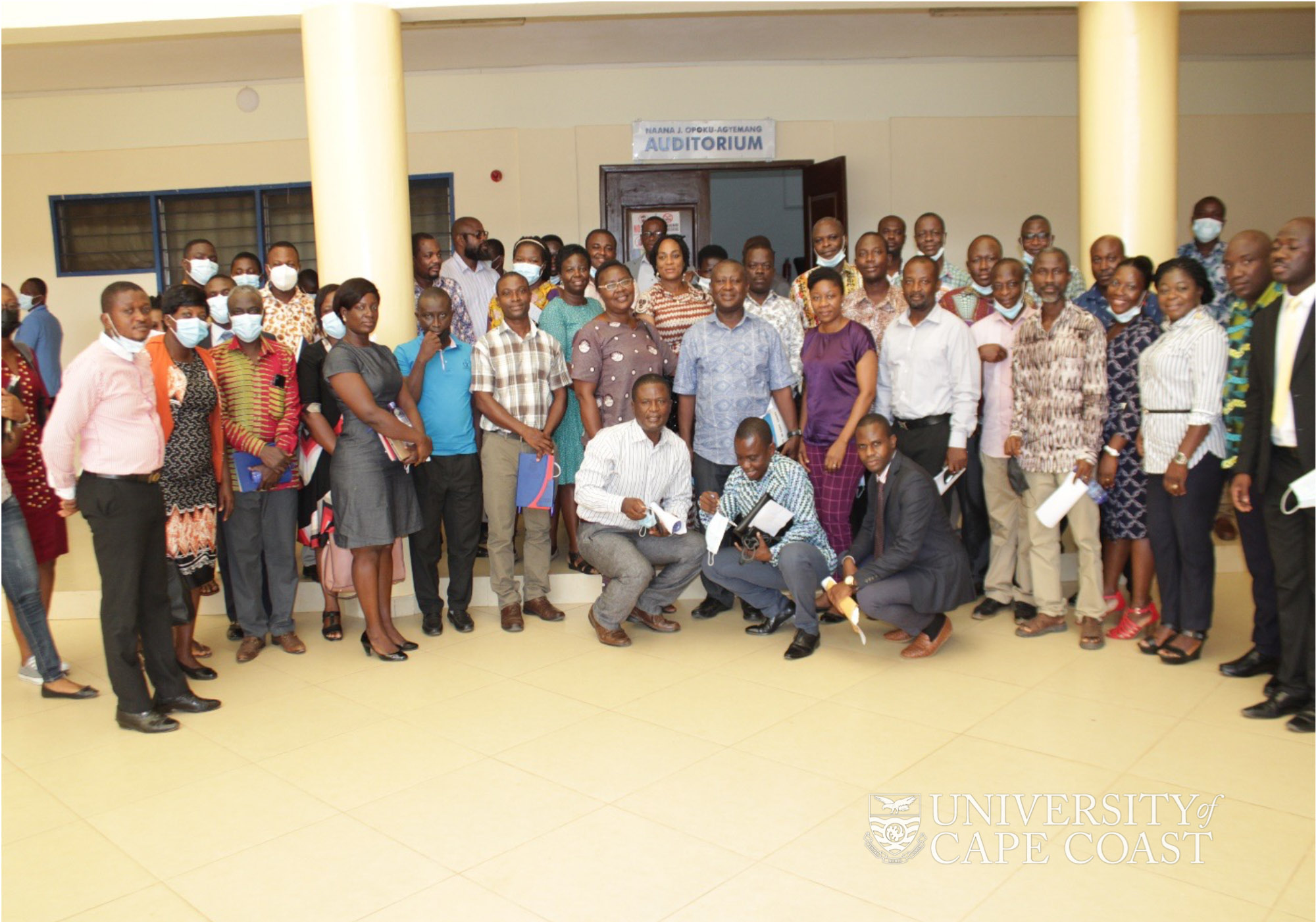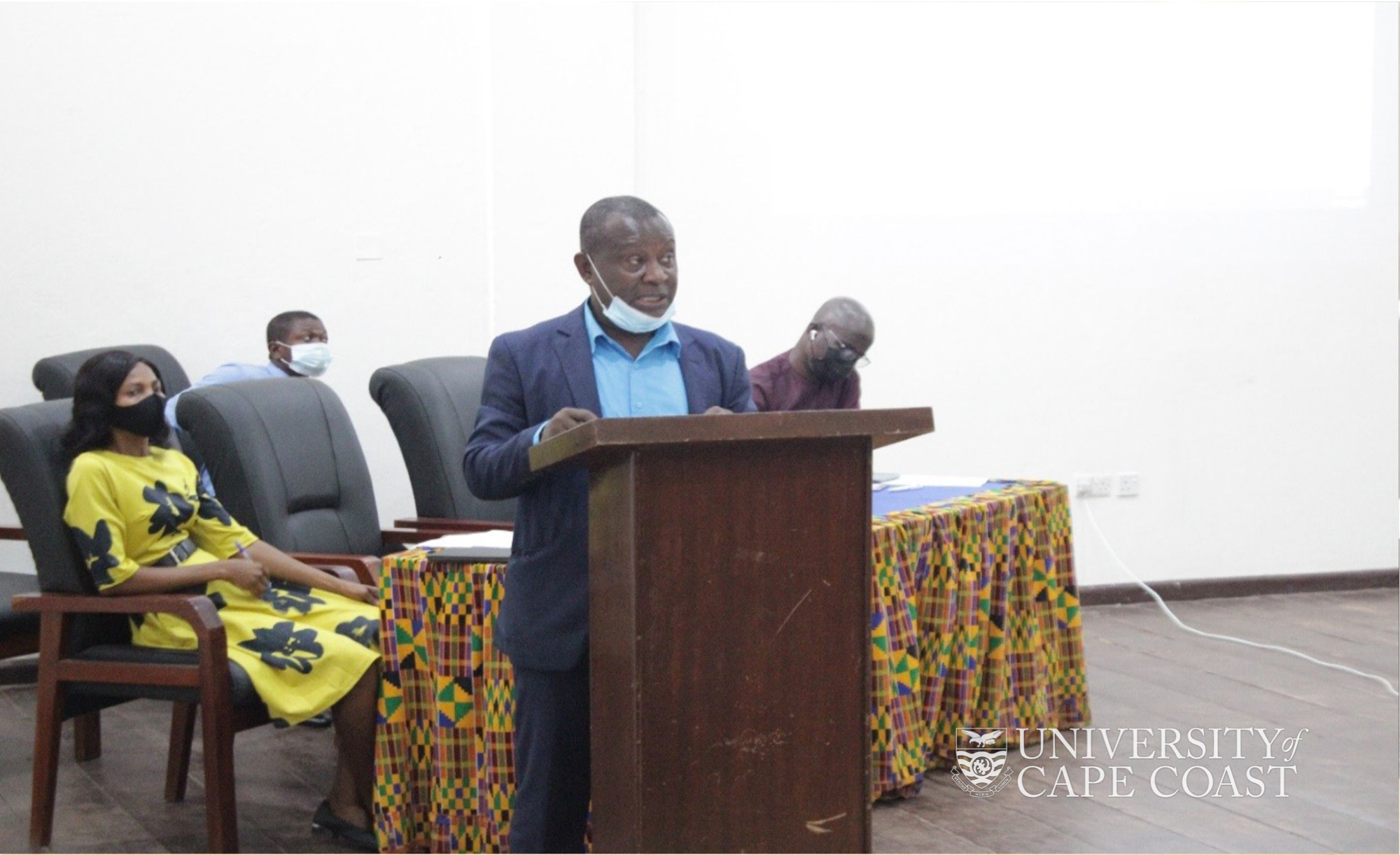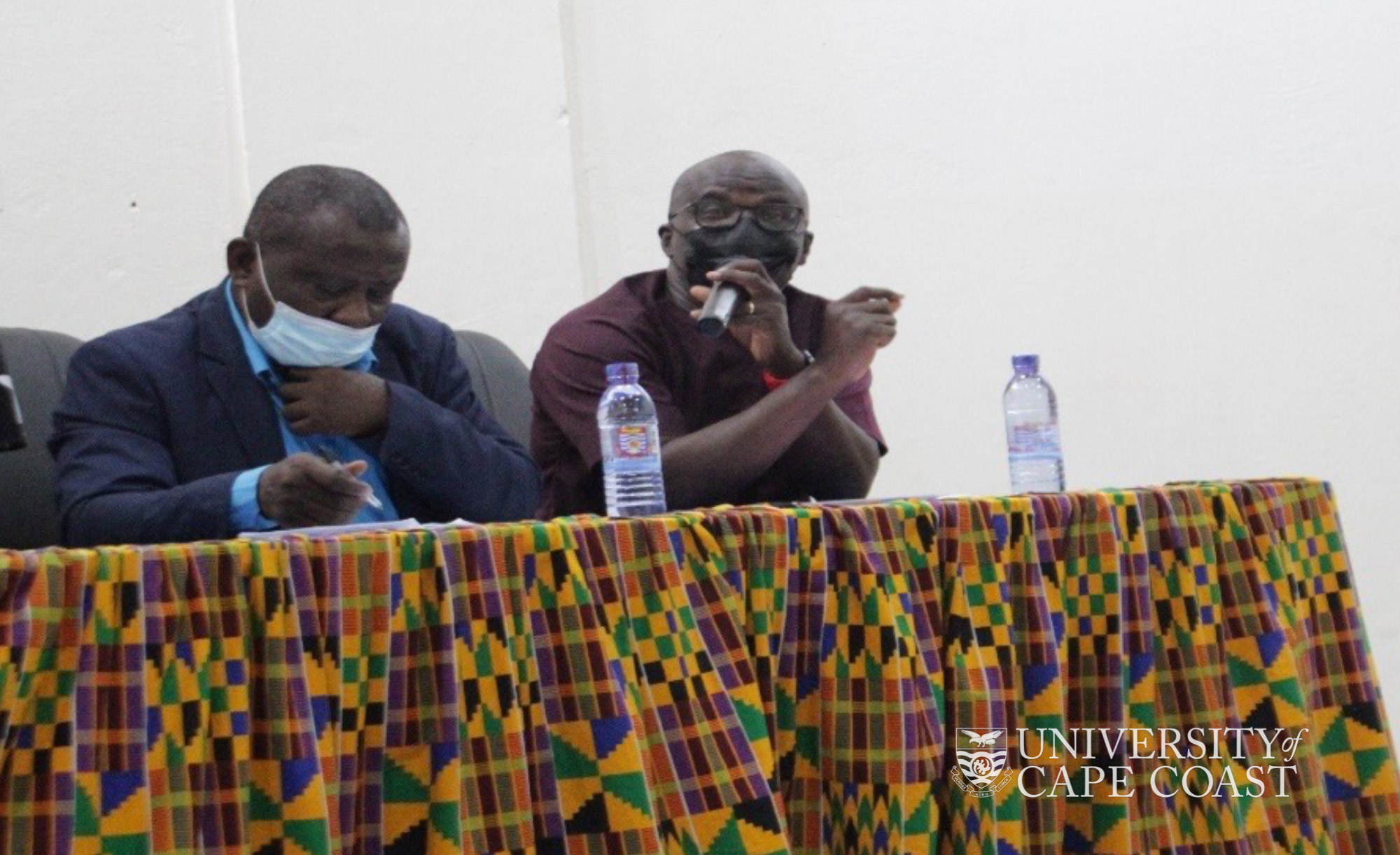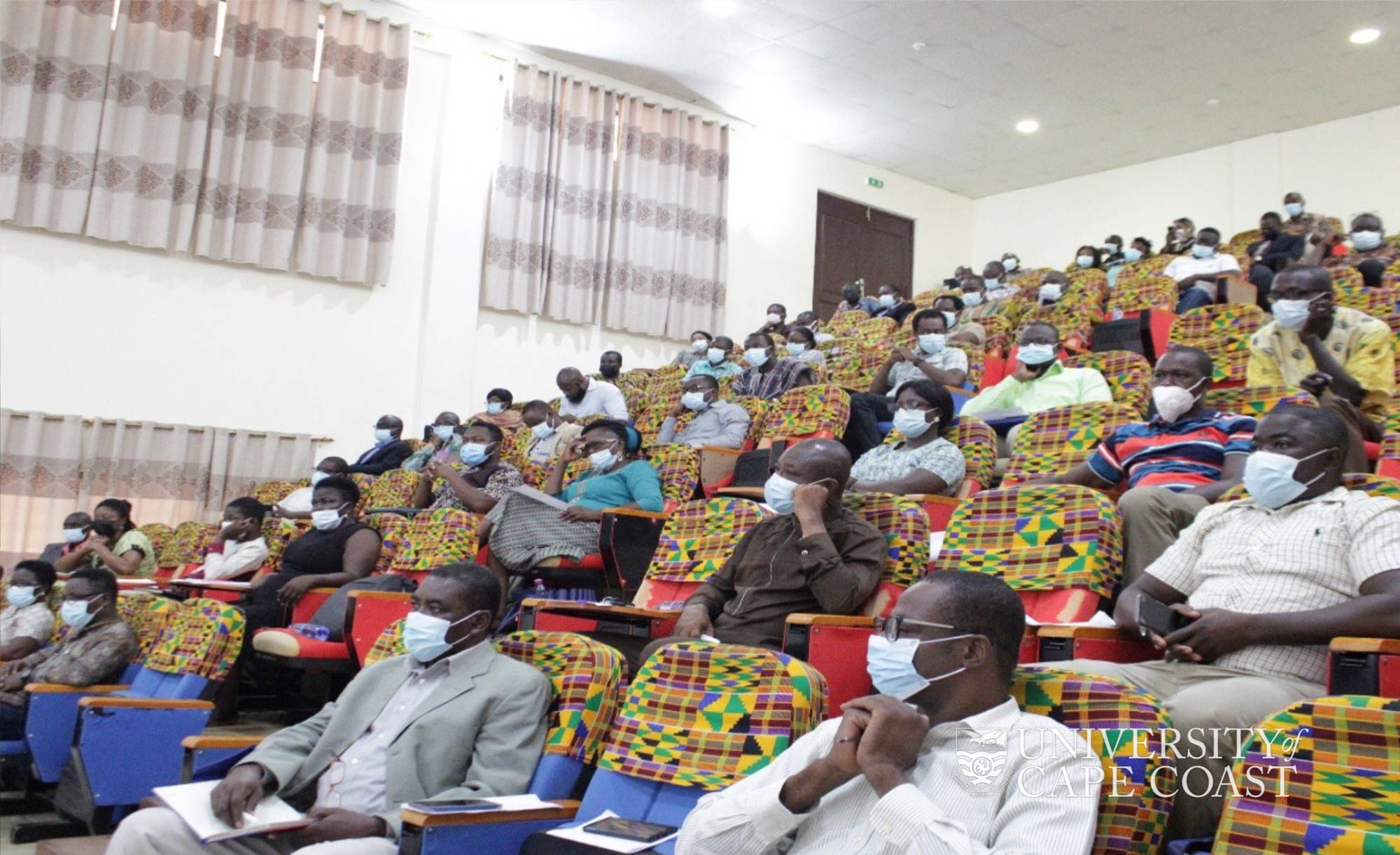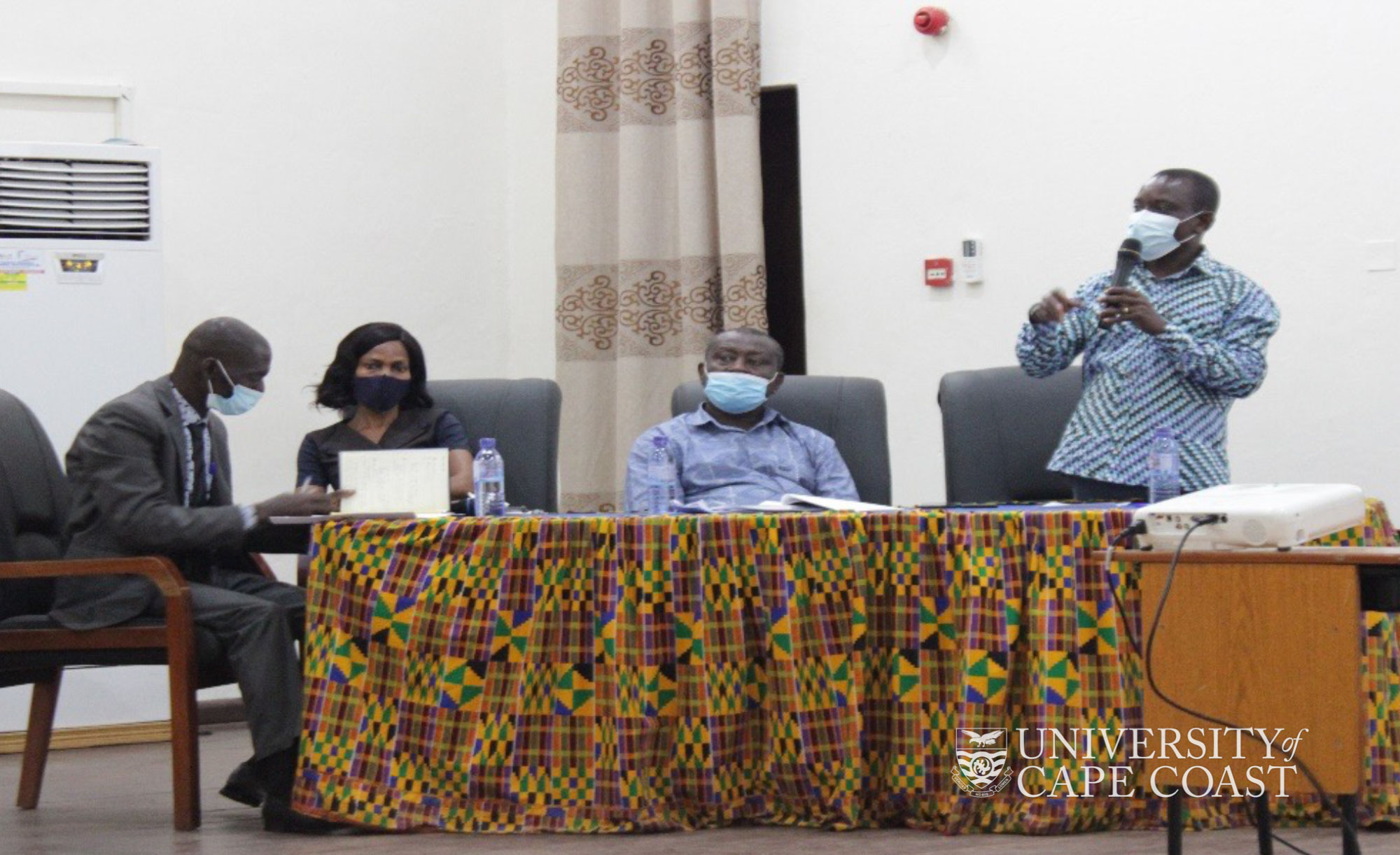The Directorate of Academic Planning and Quality Assurance (DAPQA) has organised a two-day training workshop on the theme: “Training stakeholders involved in the conduct of examinations” for Faculty Registration and Examination Officers (FREOs) and Departmental Registration and Examination Officers (DREOs). The main objective of the workshop was to train the various stakeholders involved in the conduct of examinations in the University, to play their respective roles diligently and appropriately. The workshop was expected to serve as a platform for all the stakeholders to present their challenges and to stimulate ideas, and strategies to support the work of the Examination Unit, the Directorate of Academic Planning and Quality Assurance and the Directorate of Public Affairs of the University of Cape Coast.
In his welcome remarks, Prof. Emmanuel Kofi Gyimah, the Director of DAPQA, briefed the audience about the activities of DAPQA. According to him, DAPQA’s major mandate is to conduct academic researches to support quality improvement in all aspects of the University. Importantly, Prof. Gyimah disclosed the purpose of the workshop which was to share the observations, challenges and the way forward as far as the conduct of examinations in UCC is concerned.
The main speakers of the workshop were: Prof. Emmanuel Gyimah, the Acting Director of DAPQA who presented on “General observations by DAPQA on conduct of Examinations in the University of Cape Coast”; Mr. Gideon Abbequaye, the Director of Directorate of Academic Affairs who presented on “Responsibility of examination officers in the conduct of examinations”; and Prof. Eric Anane, the Programmes Coordinator for College of Education Studies, who presented on “Moderation of examination questions”.
The presentations were followed by discussion of key issues that emerged in the presentations and a question and answer session.
It is expected that the outcome of the training workshop will lead to the generation of ideas and key inputs to shape the conduct of future examinations in the University.

